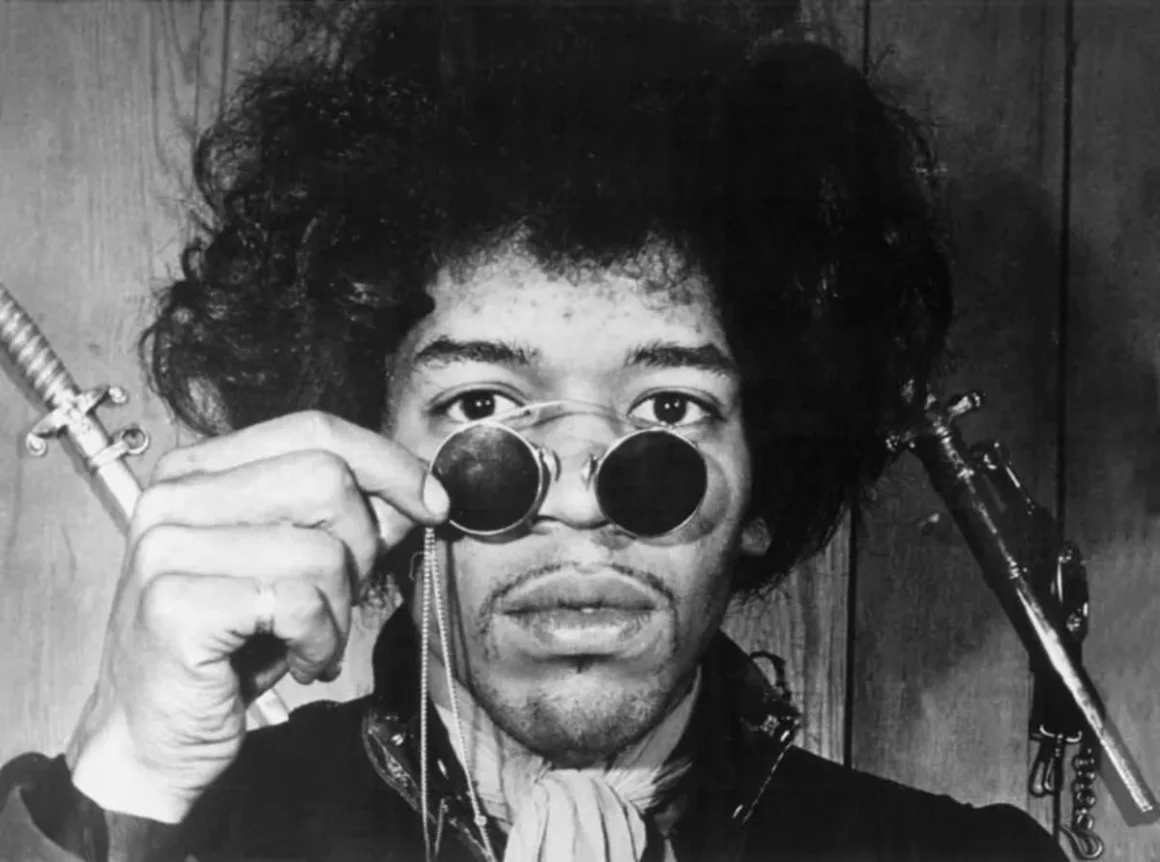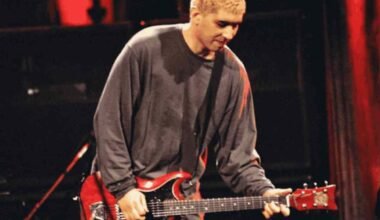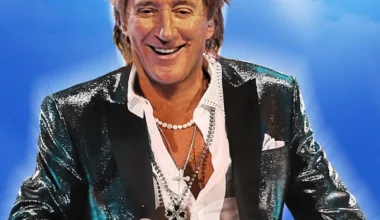No artist changed the music world as quickly as Jimi Hendrix. The iconic image of him kneeling on stage, tending to his smouldering guitar—its strings sizzling with heat after only moments of intense play—is etched into the fabric of the 1960s counter-culture revolution. Hendrix’s impact extends far beyond just his guitar skills, leaving an unforgettable mark on music.
Though many point to his and The Experience’s debut Are You Experienced? as the moment that pushed the guitar-driven 1960s into its cultural shift, it was actually a year earlier, during a performance at Regent Street Polytechnic, that Hendrix was truly thrust into the spotlight.
In 1966, Eric Clapton, one of the reigning guitarists of the time, was part of the event that marked a pivotal moment for British music. Hendrix had come to London seeking his big break. Animals bassist and manager Chas Chandler convinced Clapton and his band, Cream, to let Hendrix take the stage. As Chandler sat back and waited, the room exploded in astonishment. Hendrix wailed on the guitar, leaving Clapton exclaiming, “You didn’t tell me he was that f***ing good.”
This moment encapsulated what would become a deep mutual respect, despite the initial ego clash. Hendrix and Clapton, despite their different approaches, quickly bonded over their shared passion for music and the guitar. Both would go on to lead the blues guitar movement, but the difference was that while Clapton embraced categorization, Hendrix refused to be confined.
Clapton, already established with John Mayall’s Bluesbreakers and Cream, was known for his distinct, blues-rooted style. But for Hendrix, categorizing music was unnecessary. He was driven by a boundless desire to experiment. He didn’t limit himself to a genre; he explored every possible sound. While Clapton thrived within the lines of tradition, Hendrix blurred those lines completely, transforming the guitar into an expressive tool for boundless creativity.
Despite their friendship, critics couldn’t help but draw comparisons between the two. Yet, Hendrix had no interest in being categorized as another “blues guitarist.” Even after his groundbreaking albums Are You Experienced? and Axis: Bold as Love, Hendrix was still being lumped in with Clapton and other blues purists.
This frustration came to the forefront during a 1968 interview with music journalist Jay Ruby, where Hendrix said: “That’s one thing I don’t like at all. First of all, they compare me to Clapton, and then they say, ‘OK, now, blues first of all.’ We just don’t wanna play blues all the time.”
Hendrix, ever the artist, made it clear that he was not confined by the genre; he didn’t see blues as a boundary but simply one of many tools for self-expression. “The blues is what we’re supposed to dig. But there are other things we can play, too,” he said.
Hendrix’s words weren’t an attack on Clapton, but a statement of his philosophy. He admired blues greats like Albert King, Muddy Waters, and Clapton himself. However, Hendrix was more than just a guitar virtuoso; he was a force of nature in music, refusing to fit neatly into a genre. For him, the art of music was about limitless exploration—pushing boundaries, reinventing sound, and breaking free from traditional molds.
As the counter-culture icon, Hendrix’s explosive performances symbolized the birth of the modern “musical artist.” He was never just a part of a band or defined by a single style—Hendrix was a revolutionary, blending music with personality and passion. His legacy remains a testament to the power of freedom, expression, and the art of the guitar, making him more than just an iconic figure of the ’60s—he was a man who truly changed the course of music history.







